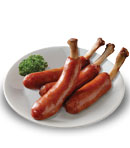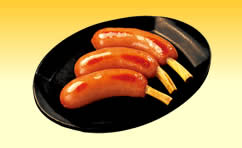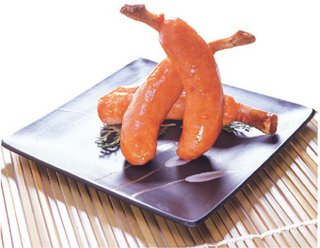Names of Chinese Dog Breeds
The name of the Shar-pei comes from shapi (沙皮), meaning “sand skin” in Chinese, which describes the roughness of the skin. Of all the Chinese breeds, this seems to be the only case where the English name of the breed comes from the Chinese and the Chinese name remains unchanged.
The spelling of the Shih-tzu (or Shi-tzu) is strange enough to scare off anyone from trying to pronounce it. I prefer to pronounce it “sheet-su, ” but many people prefer the inelegant-sounding “shit-su” The proper pronunciation for it would be shizi, which is Chinese for lion (獅子). However, perhaps because the English pronunciation bares so little resemblance to the Chinese word, even the Chinese don’t call the Shih-tzu a shizi, but instead call it the Xi Shi dog (西施犬), whose pronunciation is closer to the English “sheet-su.” (Xi Shi is a famously beautiful woman from Chinese history.)
Or perhaps Chinese do not call the Shih-tzu a “shizi” because “shizi” is also used to refer to the Pekingese (獅子狗). However, in Taiwan, the Pekingese is most commonly called a Beijing dog (北京狗). It seems most likely that the Chinese name came after the English name.
The origins of the names of the Pug is more clear. According to Wikipedia, “the word ‘Pug’ may have derived from the Latin Pugnus (fist); the Pug's face can look like a clenched fist.” The original Chinese name for them is supposedly "Lo Chiang Sze," but I don’t know what that would be in Chinese. In any case, the name currently used in Chinese for Pugs is just a transliteration of “Pug,” ba-ge (巴哥).
Chow Chow surely sounds like Chinese, but as far as I could tell searching online, the name does not come from Chinese. It supposedly comes from “chow,” slang for a ship’s cargo. Its Chinese name (鬆獅犬 puffy lion dog) has no relation to its English name.
(Bonus: The Lhasa Apso is from Tibet. Lhasa is the capital of Tibet, and “apso” comes from the Tibetan name for the dog, Abso Seng Kye. Apso apparently means “bark.”)






